The 2025 Labour Reforms That Are Reshaping Business
In 2025 South Korea has made it clear that the era of lenient labour practices is over. The country has rolled out a comprehensive package of changes that overhaul the current. And not by a simple tweak. The reforms have been designed to rebalance the scales in favour of workers. These reforms are not just policy adjustments; they are a clear signal that South Korea is prioritising worker protection and fair pay across all industries. For international employers and recruiting agencies, this means working in a much stricter regulatory environment where compliance is not optional – it’s survival.
The Minimum Wage Reality Check
The national minimum wage has climbed to 10,030 KRW per hour, translating to roughly 2,096,270 KRW for a standard 209-hour month. While the increase might seem modest, it’s part of South Korea’s deliberate strategy to gradually improve living standards without shocking the economy.
But here’s what matters more than the number itself: the government is getting increasingly aggressive about enforcement. Employers can no longer treat wage laws as a flexible guideline. The Wage Council and the Ministry of Employment and Labour (MOEL) have increased the number of inspections and are cracking down on non-compliance.
When Wage Violations Get Expensive
The Ministry of Employment and Labour (MOEL) has taken a hard stance on wage arrears, Employers that delay or withhold wages are facing forced inspections, legal action and public exposure. The penalties are serious for workers affected by repeated or deliberate wage delays can now claim up to three times their unpaid wages. Habitual offenders face even harsher consequences, including negative credit reporting that can seriously damage business operations.
This isn’t just about individual cases. The government is sending a clear message that wage violations will be met with swift and costly consequences.
Redefining What Counts as “Ordinary Wage”
One of the most impactful reforms is the expanded definition of “ordinary wage.” The 2025 revision focuses on payments made regularly and uniformly, rather than strictly fixed amounts. This might sound like bureaucratic fine-tuning, but this reform will affect how bonus and allowances and other forms of pay are calculated. Employers will see higher payroll costs, but for employees, it will mean better protection. It is especially important for foreign employees who may struggle to assert their rights, resulting in transparency and greater financial protection
Cash Rules – New Wage Payments
South Korea is also tightening the screws on how wages are paid. Employers must pay in cash or cheque, and they must honour requests for early payment for hours already worked. These rules carry extra weight for foreign workers, who may have fewer resources to fight payment delays or disputes.
Family-Friendly Policies
Starting July 1, 2025, South Korea expanded parental leave benefits significantly. The changes include longer leave durations and improved payment schemes, but there’s a particularly interesting twist: employers now receive full childcare leave subsidies even if employees resign voluntarily.
This policy recognises the reality that supporting modern work-life balance sometimes means workers will leave, and the government is willing to subsidise that transition rather than penalise it. It is a progressive approach that reflects South Korea’s broader commitment to supporting families and their commitment to family-friendly workplaces.
Safety Standards That Actually Matter
New workplace safety measures reforms also came into effect in June 2025, including specific protections against extreme heat and cold. These aren’t just suggestions, they are mandatory standards that require real investment in worker safety.
The government even implemented an “Autonomous Improvement Period” for basic heatwave safety rules, giving employers time to adapt while making it clear that compliance is mandatory.
The Political Context
These changes didn’t happen in a vacuum. Following the presidential election in June 2025, significant labour policy shifts were announced, including plans to overhaul wage and employment systems, reduce working hours, and enforce equal pay for equal work.
This political momentum suggests that 2025’s reforms are just the beginning. South Korea is repositioning itself as a country that takes worker rights seriously, and businesses need to plan accordingly.
Leap 29 Perspective and Recommendations
“Strengthening enforcement against wage arrears is a hugely positive step for both employees and responsible employers. It ensures that workers are paid fairly and on time, while also creating a level playing field where compliant businesses are not undercut by those ignoring their obligations. This type of policy fosters trust in the labor market, improves employee well‑being, and ultimately supports a healthier, more sustainable economy.” — Simon Duff, Director, Leap29
If you’re operating in South Korea or planning to expand there, the regulatory environment has fundamentally changed. The days of loose compliance and worker-unfriendly practices are over.
Here’s what you need to consider:
- Budget for higher labour costs. Between minimum wage increases and stricter enforcement, your labour expenses are going up. Plan accordingly.
- Audit your payment practices. With penalties up to three times unpaid wages, you can’t afford to have sloppy payroll systems or delayed payments.
- Review your safety protocols. The new safety standards are not suggestions—they’re requirements that come with real consequences for non-compliance.
- Understand the new wage definitions. The expanded “ordinary wage” concept affects how you calculate compensation and getting it wrong can be expensive.
Whilst operating in South Korea Leap29 Global Expansion Solutions – Leap29 can support you with the reforms, ensuring compliance is maintained.
The Bigger Picture
South Korea’s 2025 labour reforms represent an essential shift in how the country views the employer-employee relationship. The government has decided that worker protection and fair compensation are non-negotiable, and they’re backing up that commitment with serious enforcement actions.
For businesses, this means operating in a more regulated environment where compliance costs are higher, but so are worker satisfaction and retention. It is a trade-off that reflects South Korea’s broader economic strategy of building a more sustainable, worker-friendly economy.





